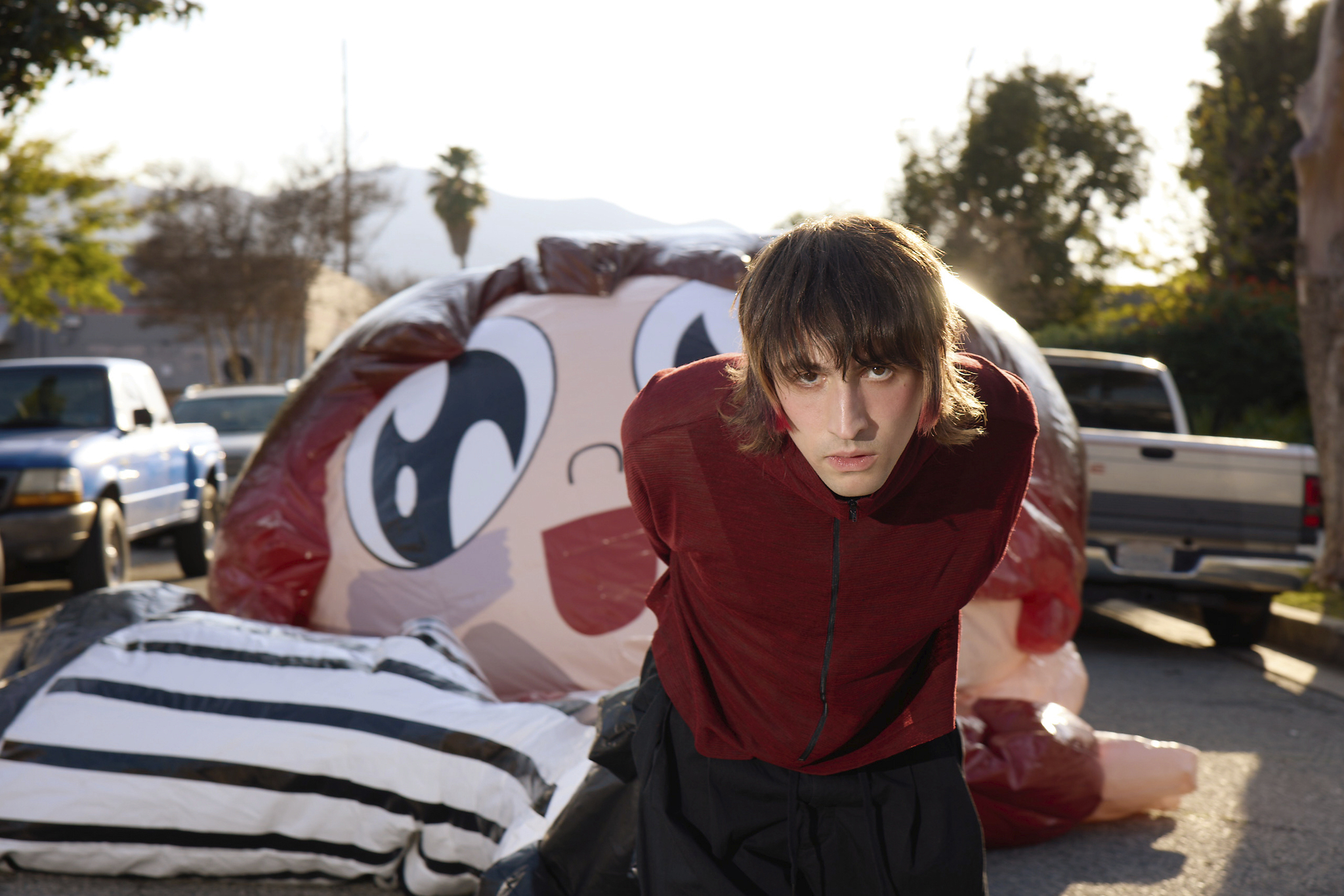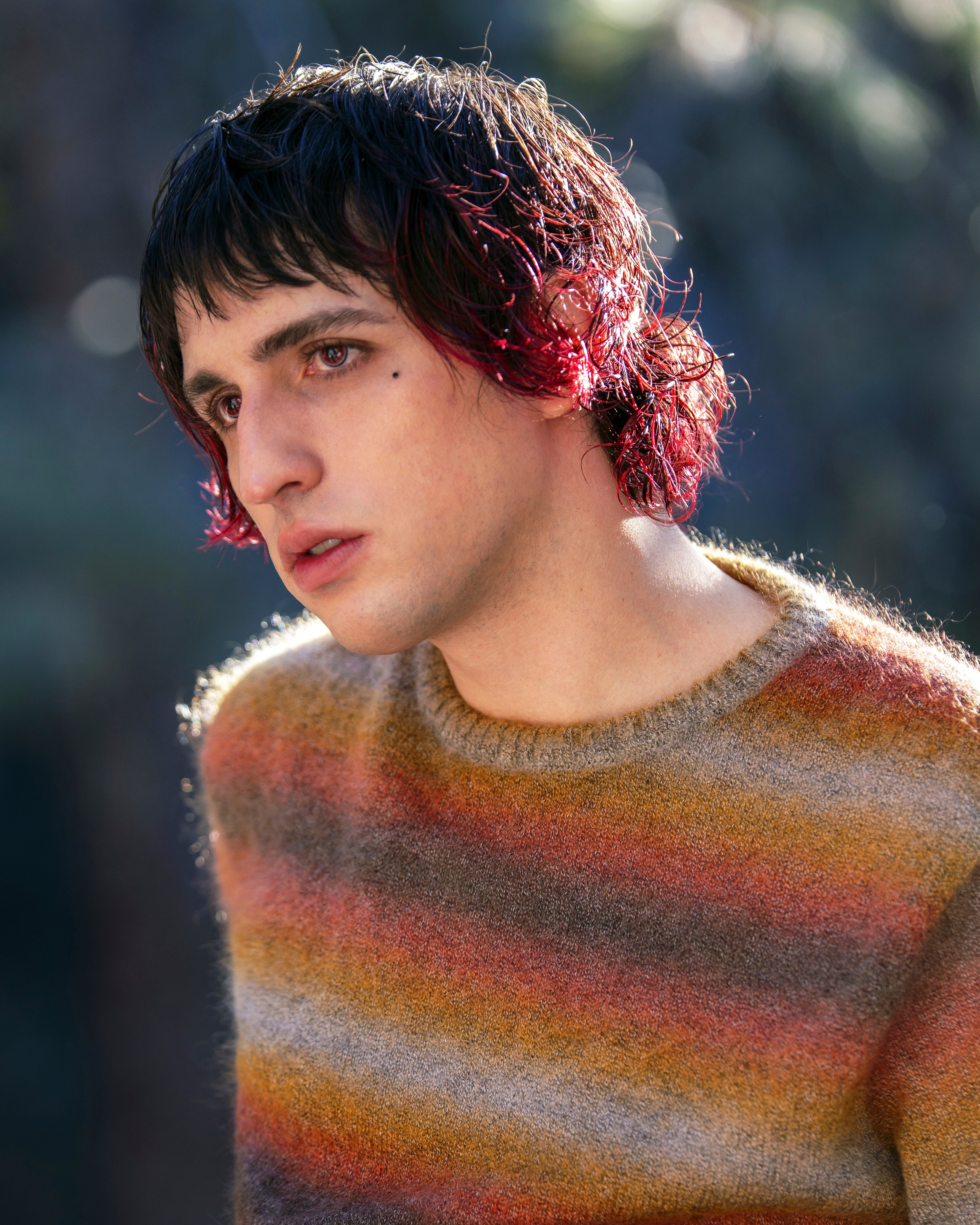DJ turned pop star Porter Robinson: ‘It makes me cry to think I can never reverse my veneers’
The electronic beatsmith left behind the club scene for pop stardom. He opens up to Annabel Nugent about sobriety, his ‘meltdown’ in Australia, and why he used to fantasise about ‘alienating all my rave fans’


Ten years ago, Porter Robinson was on top of the world. When he wasn’t playing clubs across continents or headlining festivals, he was behind the decks in Las Vegas, where he had his own residency. While his friends were cracking books and doing keg stands at college, he was on tour with dance music demigods Tiësto and Skrillex. He became the first artist to be signed to the latter’s label, and even cracked the UK Top 10 with “Language” – the blissed-out, fists-up party anthem off his first EP, which got so much traffic upon release that it crashed the popular EDM website Beatport. All this, and he was only 21.
Robinson was on the cusp of having it all. Dance music, once considered a European niche, was finally landing on the shores of mainstream America, and Robinson was among those at its frontier. Then, seemingly overnight, he threw it away. “It sounds dramatic, but it was like a switch,” Robinson, now 31, tells me from his North Carolina home. “I was on stage in Australia, and I began disassociating. I was drunk and feeling zero passion for what I was doing. I turned to my manager and told him I couldn’t keep doing it, that it had to stop… I had a bit of a meltdown.”
It’s been a long time since Robinson was a DJ, but the prefix has stuck around as prefixes tend to do. Now, he’s hoping to shake it for good with his new album SMILE! :D, an unabashed pop record that’s by turns bombastic and vulnerable. The album, strictly under wraps after the leak of a previous release in 2018 saw people trade tracks online for bitcoin, continues the move away from his EDM roots – a pivot that started in 2014 with his shimmering full-length debut Worlds and continued on 2021’s ambient-pop outing Nurture. Lead single “Cheerleader” is a starburst of indie pop-punk, like a pair of scuffed-up Doc Martens stomping through a field of balloons filled with rainbow confetti.

There’s a shot of 2010s emo on there, too, and more guitar ballads than you might think – a direct result of Robinson learning to play a few years ago. It was only then that he started listening to Radiohead, Coldplay, and The Killers. Even “Mr Brightside” had passed him by. “No, really,” Robinson laughs at my arched eyebrow. “I had never heard it before – no one believes me!”
In conversation, Robinson is eloquent and thoughtful. Answers often end in unexpected places, with an apologetically mumbled “I don’t know how we got here” offered up as addendum. But the destination is as interesting as the origins. The same goes for his career: a series of hairpin musical turns that point to a restless artist unable to sit still for long, distracted by a new thing sparkling in the corner of his eye.
Having grown up in a happy family in North Carolina, Robinson counts the internet as a third parent. “Going to church and sports games and being with my normie jock friends at school, the family PC emerged as this beacon to me,” he says. “I was living on autopilot until the internet, honestly.”
Robinson, dyed black, features two longer blunt sections that fall like stiff curtains on either side of his face. Your average person might call it a mullet, but a certain crowd will recognise the look as a “hime” haircut, a Japanese style popularised by J-Drama stars and anime. He is an easy conversationalist, and is quick to smile. Robinson’s teeth (not his own) make an appearance on the album as he despairs over a past decision to get veneers. “It makes me cry thinking I can never reverse it,” he says now, audibly upset, before baring two rows of perfect pearly whites for me.

For the first 20 years of his life, he only listened to EDM. It began, as many early interests do, because of a cooler older sibling. “My brother brought home a copy of Dance Dance Revolution (DDR),” says Robinson, referring to the Japanese game in which players hit floor pads in sync with arrows that fly past a screen to a relentless beat. “It was my first time hearing electronic music and Japanese music and I fell in love.”
It wasn’t long before Robinson was mixing his own DDR tracks using an illegal software he’d found online. As early as 12, Robinson knew his way around an EDM song – both as aficionado and architect, piling sounds into a Jenga tower of pleasure, the satisfying collapse brought on by a well-timed bass drop. The genre is often unfairly written off as glorified button-pushing but Robinson knows the right buttons can create an experience like no other: a heaven-scraping crescendo to make your heart swell or a Teutonic bass line to make your head bang.
Enjoy unlimited access to 100 million ad-free songs and podcasts with Amazon Music
Sign up now for a 30-day free trial. Terms apply.
ADVERTISEMENT. If you sign up to this service we will earn commission. This revenue helps to fund journalism across The Independent.
Enjoy unlimited access to 100 million ad-free songs and podcasts with Amazon Music
Sign up now for a 30-day free trial. Terms apply.
ADVERTISEMENT. If you sign up to this service we will earn commission. This revenue helps to fund journalism across The Independent.
It was Robinson’s song “Say My Name” that got him noticed by mainstream audiences – including Skrillex who invited him on tour. It felt like the start of something new, says Robinson. Together they played venues that had never hosted a dance musician before; EDM wasn’t even a word yet. “Those days actually felt like being a part of history,” he says.
His underground interest, however, was now very much above ground – and so, infinitely less interesting to him. “It was turning into this arena-sized highly commercial thing, which wasn’t what I wanted to do, and the whole EDM festival thing felt super whack to me,” he says. “I was becoming known for a genre I couldn’t vouch for anymore.”
I was trying to be a rockstar but really, I was just drinking to get through the shows
And so, one “meltdown” later, he started work on Worlds, his debut album and first pivot away from EDM. The record, which saw the beatsmith swap club bangers for electro-pop, was a significant left turn for Robinson – and he wanted it recognised as such. “I imagined releasing it and overnight being in a completely different realm,” he says now. “I fantasised about losing my entire audience at the time, like trying to alienate my rave fans. There are videos of me berating people in the crowd for bringing rave gear to my shows,” he cringes.
Today, he wishes he had gone about it with more grace. “I can’t turn my nose up as I once did,” he says. “As long as people are listening, I’m grateful.” Robinson looks back regretfully at a video of him bullishly declaring EDM as “not art”. “That was so wrongheaded,” he says. “EDM is clearly art… that video was me trying to escape something and being a bit of a d***head honestly.” It was around this time that he made “Clarity” with Zedd. The euphoric bop went down in dance music history as one of its biggest anthems, racking up 574 million streams on Spotify. But at the time, Robinson didn’t want to be associated with it, going so far as to take his name off the credits. (He still gets residuals from it, though.)
“Around then, I was at my peak level of angst about not wanting to make EDM,” he says, “...and wanting to be cool.” Cool was a preoccupation for Robinson back then. On stage, he wore sunglasses and leather jackets, gulping Grey Goose from the bottle.“I was trying to be a rockstar but really, I was just drinking to get through the shows,” he says. And there were so many to get through: there was a point when Robinson was playing over 200 shows a year.

When Avicii died by suicide in 2018, having spoken about his mental health suffering due to his job, it was, says Robinson, “a wake-up call for a lot of people”. Robinson is sober these days – something, he jokes, is a cliché in the former DJ circles. “Almost every single DJ who was popular in the 2010s is now extremely sober,” he says. “You start falling apart but then you procrastinate, like putting off the pain. Then it hits you all at once.”
That’s all behind him now. The release of SMILE! :D follows three years on from Nurture, Robinson’s critically acclaimed follow-up album about how he clawed his way out of depression and found his way back to music. The uplifting themes belie an arduous process, though: Nurture took seven years to make, penned in an echo chamber of criticism and adoration in which Robinson found himself paralysed. “I was insanely worried that I was going to be thought of negatively or misunderstood,” he says. “I wanted to be maximally helpful and maximally responsible because I wanted to help people in the same position as me, and I wanted to be seen as a good person – but as time went by, I realised I was shaving off more and more parts of myself in order to do that until all I was left with was this little cartoon character that wasn’t real.” On SMILE, Robinson loosens his white-knuckle grip and finds something closer to the truth. “Even on those arrogant cocky tracks, it’s honest,” he smiles. “Because it speaks to how I wish I could be.”
‘SMILE! :D’ is released on 26 July via MOM+POP
Join our commenting forum
Join thought-provoking conversations, follow other Independent readers and see their replies
Comments
Bookmark popover
Removed from bookmarks